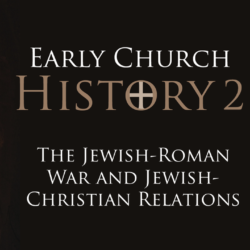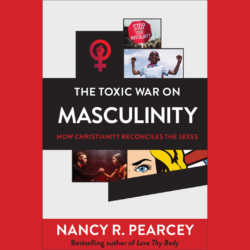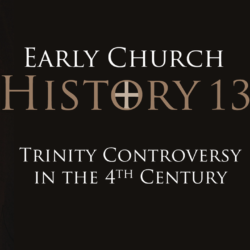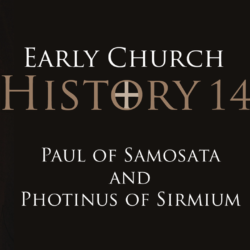Is war ever justified? If so, can Christians participate in killing? In this episode we delve into a sensitive and controversial subject to figure out what the bible has to teach us about how we should treat our enemies. Our aim here is not be provocative, but faithful to what our lord taught us. Here now is the conclusion of our series on killing: off script 38: Killing in War: A Christian View of Violence
—— Notes ——
Four Texts in the Sermon on the Mount Clearly Show What Jesus Taught
- Mat 5.5 Blessed are the meek, for they shall inherit the earth.
- Mat 5.9 Blessed are the peacemakers, for they shall be called sons of God.
- Mat 5.38-42 You have heard that it was said, ‘An eye for an eye and a tooth for a tooth.’ But I say to you, Do not resist the one who is evil. But if anyone slaps you on the right cheek, turn to him the other also. And if anyone would sue you and take your tunic, let him have your cloak as well. And if anyone forces you to go one mile, go with him two miles. Give to the one who begs from you, and do not refuse the one who would borrow from you.
- Mat 5.43-48 You have heard that it was said, ‘You shall love your neighbor and hate your enemy.’ But I say to you, Love your enemies and pray for those who persecute you, so that you may be sons of your Father who is in heaven. For he makes his sun rise on the evil and on the good, and sends rain on the just and on the unjust. For if you love those who love you, what reward do you have? Do not even the tax collectors do the same? And if you greet only your brothers, what more are you doing than others? Do not even the Gentiles do the same? You therefore must be perfect, as your heavenly Father is perfect.
Jesus’ Apostles Furthermore Continued His Teaching:
- 1 Thess 5.15 See that no one repays anyone evil for evil, but always seek to do good to one another and to everyone.
- Rom 12.14, 17-21 Bless those who persecute you; bless and do not curse them…Repay no one evil for evil, but give thought to do what is honorable in the sight of all. 18 If possible, so far as it depends on you, live peaceably with all. Beloved, never avenge yourselves, but leave it to the wrath of God, for it is written, “Vengeance is mine, I will repay, says the Lord.” To the contrary, “if your enemy is hungry, feed him; if he is thirsty, give him something to drink; for by so doing you will heap burning coals on his head.” Do not be overcome by evil, but overcome evil with good.
- 1 Pet 3.8-11 Finally, all of you, have unity of mind, sympathy, brotherly love, a tender heart, and a humble mind. Do not repay evil for evil or reviling for reviling, but on the contrary, bless, for to this you were called, that you may obtain a blessing. For “Whoever desires to love life and see good days, let him keep his tongue from evil and his lips from speaking deceit; let him turn away from evil and do good; let him seek peace and pursue it.
Three Views of “Resist Not Evil”
- total nonresistance
- find exceptions to Jesus’ commands
- confrontational nonresistance
Quotes:
Hippolytus (a.d. 215)
A soldier of the civil authority must be taught not to kill men and to refuse to do so if he is commanded, and to refuse to take an oath. If he is unwilling to comply, he must be rejected for baptism. A military commander or civic magistrate who wears the purple must resign or be rejected. If an applicant or a believer seeks to become a soldier, he must be rejected, for he has despised God.” [1]Origen (a.d. 248)
In the next place, Celsus urges us “to help the king with all our might, and to labour with him in the maintenance of justice, to fight for him; and if he requires it, to fight under him, or lead an army along with him.” To this our answer is, that we do, when occasion requires, give help to kings, and that, so to say, a divine help, “putting on the whole armour of God.” And this we do in obedience to the injunction of the apostle, “I exhort, therefore, that first of all, supplications, prayers, intercessions, and giving of thanks, be made for all men; for kings, and for all that are in authority;” and the more any one excels in piety, the more effective help does he render to kings, even more than is given by soldiers, who go forth to fight and slay as many of the enemy as they can. And to those enemies of our faith who require us to bear arms for the commonwealth, and to slay men, we can reply: “Do not those who are priests at certain shrines, and those who attend on certain gods, as you account them, keep their hands free from blood, that they may with hands unstained and free from human blood offer the appointed sacrifices to your gods; and even when war is upon you, you never enlist the priests in the army. If that, then, is a laudable custom, how much more so, that while others are engaged in battle, these too should engage as the priests and ministers of God, keeping their hands pure, and wrestling in prayers to God on behalf of those who are fighting in a righteous cause, and for the king who reigns righteously, that whatever is opposed to those who act righteously may be destroyed!” And as we by our prayers vanquish all demons who stir up war, and lead to the violation of oaths, and disturb the peace, we in this way are much more helpful to the kings than those who go into the field to fight for them. And we do take our part in public affairs, when along with righteous prayers we join self-denying exercises and meditations, which teach us to despise pleasures, and not to be led away by them. And none fight better for the king than we do. We do not indeed fight under him, although he require it; but we fight on his behalf, forming a special army—an army of piety—by offering our prayers to God. [2]
Mahatma Ghandi (from speech to London Missionary Society of India in 1925)
Non-violence … requires greater heroism than of brave soldiers … The world does not accept today the idea of loving the enemy. Even in Christian Europe the principle of non-violence is ridiculed … Christians do not understand the message of Jesus. It is necessary to deliver it over again in the way we can understand … But I must say that so long as we do not accept the principle of loving the enemy, all talk of world brotherhood is an airy nothing.
In this episode I referred to a bunch of quotes from early Christians on violence and war. Here they are:
The Didache (a.d. 120)
3 What these maxims teach is this: “Bless those who curse you,” and “pray for your enemies.” Moreover, fast “for those who persecute you.” For “what credit is it to you if you love those who love you? Is that not the way the heathen act?” But “you must love those who hate you,” and then you will make no enemies. 4 “Abstain from carnal passions.” If someone strikes you “on the right cheek, turn to him the other too, and you will be perfect.” If someone “forces you to go one mile with him, go along with him for two”; if someone robs you “of your overcoat, give him your suit as well.” If someone deprives you of “your property, do not ask for it back.” (You could not get it back anyway!)[3]
“Mathetes” (a.d. 130)
1 For the Christians are distinguished from other men neither by country, nor language, nor the customs which they observe. 2 For they neither inhabit cities of their own, nor employ a peculiar form of speech, nor lead a life which is marked out by any singularity… 4 But, inhabiting Greek as well as barbarian cities, according as the lot of each of them has determined, and following the customs of the natives in respect to clothing, food, and the rest of their ordinary conduct, they display to us their wonderful and confessedly striking method of life. 5 They dwell in their own countries, but simply as sojourners. As citizens, they share in all things with others, and yet endure all things as if foreigners. Every foreign land is to them as their native country, and every land of their birth as a land of strangers. 6 They marry, as do all others; they beget children; but they do not destroy their offspring. 7 They have a common table, but not a common bed. 8 They are in the flesh, but they do not live after the flesh. 9 They pass their days on earth, but they are citizens of heaven. 10 They obey the prescribed laws, and at the same time surpass the laws by their lives. 11 They love all men, and are persecuted by all. 12 They are unknown and condemned; they are put to death, and restored to life. 13 They are poor, yet make many rich; they are in lack of all things, and yet abound in all; 14 they are dishonored, and yet in their very dishonor are glorified. They are evil spoken of, and yet are justified; 15 they are reviled, and bless; they are insulted, and repay the insult with honor; 16 they do good, yet are punished as evil-doers. When punished, they rejoice as if quickened into life; 17 they are assailed by the Jews as foreigners, and are persecuted by the Greeks; yet those who hate them are unable to assign any reason for their hatred.[4]
Justin Marytr (a.d.160)
[W]e who formerly used to murder one another do not only now refrain from making war upon our enemies, but also, that we may not lie nor deceive our examiners, willingly die confessing Christ.[5]Justin Marytr (a.d. 160)
[W]e who were filled with war, and mutual slaughter, and every wickedness, have each through the whole earth changed our warlike weapons,— our swords into ploughshares, and our spears into implements of tillage, —and we cultivate piety, righteousness, philanthropy, faith, and hope, which we have from the Father himself through him who was crucified; [6]Irenaeus (a.d. 180)
If any one, however, advocating the cause of the Jews, do maintain that this new covenant consisted in the rearing of that temple which was built under Zerubbabel after the emigration to Babylon, and in the departure of the people from thence after the lapse of seventy years, let him know that the temple constructed of stones was indeed then rebuilt (for as yet that law was observed which had been made upon tables of stone), yet no new covenant was given, but they used the Mosaic law until the coming of the Lord; but from the Lord’s advent, the new covenant that brings back peace and the law that gives life have gone forth over the whole earth, as the prophets said: “For out of Zion will go forth the law, and the word of the Lord from Jerusalem; and he will rebuke many people; and they will break down their swords into plowshares, and their spears into pruning hooks, and they will no longer learn to fight”… these [Christians] did form the swords and war-lances into ploughshares, and changed them into pruning-hooks for reaping the corn, [that is], into instruments used for peaceful purposes, and that they are now unaccustomed to fighting, but when smitten, offer also the other cheek. [7]Clement of Alexandria (a.d. 195)
For it is not in war, but in peace, that we are trained. War needs great preparation, and luxury craves profusion; but peace and love, simple and quiet sisters, require no arms nor excessive preparation.[8]Tertullian (a.d. 197)
Isaiah in the ensuing words announces, saying, “…and they shall join to beat their swords into ploughs, and their lances into sickles; and nations shall not take up sword against nation, and they shall no more learn to fight.” Who else, therefore, are understood but we, who, fully taught by the new law, observe these practices,—the old law being obliterated, the coming of whose abolition the action itself demonstrates? For the inclination of the old law was to avenge itself by the vengeance of the sword, and to pluck out “eye for eye,” and to inflict retaliatory revenge for injury. But the new law’s inclination was to point to mercy, and to convert to tranquility the original ferocity of “swords” and “lances,” and to remodel the original execution of “war” upon the rivals and foes of the law into the peaceable actions of “ploughing” and “tilling” the land. Therefore as we have shown above that the coming cessation of the old law and of the carnal circumcision was declared, so, too, the observance of the new law and the spiritual circumcision has shone out into the voluntary obedience of peace.[9]Tertullian (a.d. 200)
But now inquiry is made about this point, whether a believer may turn himself unto military service, and whether the military may be admitted unto the faith, even the rank and file, or each inferior grade, to whom there is no necessity for taking part in sacrifices or capital punishments. There is no agreement between the divine and the human sacrament, the standard of Christ and the standard of the devil, the camp of light and the camp of darkness. One soul cannot be due to two masters—God and Cæsar. And yet Moses carried a rod, and Aaron wore a buckle, and John (the Baptist) is girt with leather and Joshua the son of Nun leads a line of march; and the People warred: if it pleases you to sport with the subject. But how will a Christian man war, nay, how will he serve even in peace, without a sword, which the Lord has taken away? For albeit soldiers had come unto John, and had received the formula of their rule; albeit, likewise, a centurion had believed; still the Lord afterward, in disarming Peter, [disarmed] every soldier.[10]Tertullian (a.d. 211)
Shall it be held lawful to make an occupation of the sword, when the Lord proclaims that he who uses the sword shall perish by the sword? And shall the son of peace take part in the battle when it does not become him even to sue at law? And shall he apply the chain, and the prison, and the torture, and the punishment, who is not the avenger even of his own wrongs? Shall he, forsooth [indeed], either keep watch-service for others more than for Christ, or shall he do it on the Lord’s day, when he does not even do it for Christ Himself? And shall he keep guard before the temples which he has renounced? And shall he take a meal where the apostle has forbidden him? And shall he diligently protect by night those whom in the day-time he has put to flight by his exorcisms, leaning and resting on the spear the while with which Christ’s side was pierced? Shall he carry a flag, too, hostile to Christ? …Then how many other offences there are involved in the performances of camp offices, which we must hold to involve a transgression of God’s law, you may see by a slight survey. The very carrying of the name over from the camp of light to the camp of darkness is a violation of it. Of course, if faith comes later, and finds any preoccupied with military service, their case is different, as in the instance of those whom John used to receive for baptism, and of those most faithful centurions, I mean the centurion whom Christ approves, and the centurion whom Peter instructs; yet, at the same time, when a man has become a believer, and faith has been sealed, there must be either an immediate abandonment of it, which has been the course with many; or all sorts of quibbling will have to be resorted to in order to avoid offending God, and that is not allowed even outside of military service; or, last of all, for God the fate must be endured which a citizen-faith has been no less ready to accept.[11]Origen (a.d. 248)
And to those who inquire of us whence we come, or who is our founder, we reply that we are come, agreeably to the counsels of Jesus, to “cut down our hostile and insolent [wearisome] swords into ploughshares, and to convert into pruning-hooks the spears formerly employed in war.” For we no longer take up “sword against nation,” nor do we “learn war any more,” having become children of peace, for the sake of Jesus, who is our leader, instead of those whom our fathers followed, among whom we were “strangers to the covenant,” and having received a law, for which we give thanks to Him that rescued us from the error (of our ways)…[12]Cyprian (a.d. 250)
Consider the roads blocked up by robbers, the seas beset with pirates, wars scattered all over the earth with the bloody horror of camps. The whole world is wet with mutual blood; and murder, which in the case of an individual is admitted to be a crime, is called a virtue when it is committed wholesale. Impunity is claimed for the wicked deeds, not on the plea that they are guiltless, but because the cruelty is perpetrated on a grand scale.[13]Cyprian (a.d. 250)
Adultery, fraud, manslaughter, are mortal crimes. Let patience be strong and stedfast in the heart; and neither is the sanctified body and temple of God polluted by adultery, nor is the innocence dedicated to righteousness stained with the contagion of fraud; nor, after the Eucharist carried in it, is the hand spotted with the sword and blood.[14]Arnobius (a.d. 305)
For since we, a numerous band of men as we are, have learned from His teaching and His laws that evil ought not to be requited with evil, that it is better to suffer wrong than to inflict it, that we should rather shed our own blood than stain our hands and our conscience with that of another, an ungrateful world is now for a long period enjoying a benefit from Christ, inasmuch as by His means the rage of savage ferocity has been softened, and has begun to withhold hostile hands from the blood of a fellow-creature. But if all without exception, who feel that they are men not in form of body but in power of reason, would lend an ear for a little to His salutary and peaceful rules, and would not, in the pride and arrogance of enlightenment, trust to their own senses rather than to His admonitions, the whole world, having turned the use of steel into more peaceful occupations, would now be living in the most placid tranquillity, and would unite in blessed harmony, maintaining inviolate the sanctity of treaties. [15]Lactantius (a.d. 313)
Or why should he carry on war, and mix himself with the passions of others, when his mind is engaged in perpetual peace with men? Doubtless he will be delighted with foreign merchandise or with human blood, who does not know how to seek gain, who is satisfied with his mode of living, and considers it unlawful not only himself to commit slaughter, but to be present with those who do it, and to behold it![16]Lactantius (a.d. 313)
It is not right that a worshiper of God should be injured by another worshiper of God.[17]
To find more quotes about early post-biblical Christian beliefs/practices, see David Bercot’s Dictionary of Early Christian Beliefs
[1] The Apostolic Tradition of Hippolytus of Rome, 16.17-19
[2] Origen Against Celsus, book 8, chapter 73 (ANF: Vol. 4, p. 667-668).
[3] The Teaching of the Twelve Apostles 1.3-4
[4] Letter to Diognetus 5.1-17 (ANF: Vol 1. pp. 26-27).
[5] The First Apology of Justin, chapter 39 (ANF: Vol 1. p. 176).
[6] Dialogue with Trypho, chapter 110 (ANF: Vol. 1, p. 254).
[7] Against Heresies, book 4, chapter 34 (ANF: Vol. 1, p. 512).
[8] The Instructor, book 1, chapter 12 (ANF: Vol. 2, pp. 234-235).
[9] An Answer to the Jews, chapter 3 (ANF: Vol. 3, p. 154). The following Old English words were replaced: glaive -> sword; wont -> inclination; tranquillity -> tranquility; clemency -> mercy; pacific -> peaceable; pristine -> original; obediences -> obedience
[10] On Idolatry, chapter 19, (ANF: Vol. 3, p. 73).
[11] Since leaving the military was illegal, a soldier who converted to Christianity was in a difficult spot. He could desert and make his escape, remain a soldier without offending God (which Tertullian thinks is impossible), or else die as a martyr in the same way as many civilian Christians had. Apologetic, book 4 “The Chaplet”, chapter 11.
[12] Origen Against Celsus, book 5, chapter 33 (ANF: Vol. 4, p. 558).
[13] The Epistle of Cyprian: Epistle I: To Donatus, chapter 6 (ANF: Vol. 5, p. 277).
[14] The Treatises of Cyprian, Treatise 9.14 (ANF: Vol. 5, p. 488).
[15] The Seven Books of Arnobius Against the Heathen, book 1, chapter 6 (ANF: Vol. 6, p. 415).
[16] The Divine Institutes, Book 5: Of Justice, Wisdom, and Folly, chapter 8 (ANF: Vol. 7, p. 153)
[17] A Treatise on the Anger of God Addressed to Donatus, chapter 14 (ANF: Vol. 7, p. 271).
—— Links ——
- For a much more thorough explanation of this subject, listen to
- For more about Desmond Doss the heroic medic of World War 2 who won the congregational medal of honor while refusing to kill because of his Christian beliefs, see Hacksaw Ridge
- Check out the other episodes in the series on Killing
- Intro music: “Protofunk” by Kevin MacLeod. Licensed under Creative Commons: By Attribution 3.0 License.







I really enjoyed this episode. It challenged my current worldview with scripture(a very good thing, even if not pleasant at times). I do have few questions. 1.Can none lethal self defense be put under “confrontational nonresistance” or is it always finding “exceptions to Jesus’ commands.”
For example in the highly unlikely event that I would be walking a busy street and someone pulled out a gun and started shooting other people/family/etc. Would it be against the bible to(if I had the training)Disarm the individual.
Thank you for a thought-provoking episode, as always.
However, there were a few issues that were brought up by Sean that I feel compelled to comment on:
1) Sean mentioned that the Law of Moses permitted the use of mortal self-defense against a robber (or breaker in of one’s household). This is not totally accurate according to many Bible translations. It is true that if the struggle occurred at night, the defender would be guiltless if the struggle resulted in the death of the robber. However, if this event took place during the daytime, the one acting in self-defense would find himself guilty of an unlawful killing, and would therefore face being put to death himself as a result of defending his possessions. (See Exodus 22:2-3):
If a thief is caught in the act of breaking into a house and is killed in the process, the person who killed the thief is not guilty. But if it happens in daylight, the one who killed the thief is guilty of murder. (NLT)
2) Sean mentioned his support of fighting in “a just war.” This may come as a surprise to most people, but there is no such thing as an official, agreed upon “Just War Theory.” Even the “father” of the “Just War Theory,” Augustine, did not have a “Just War Theory” formulated, but rather he had a bunch of loose thoughts about war scattered through his volumes of writings. But more importantly, the Bible does not teach a “Just War Theory”. I am glad that Sean’s comment got some push-back from the two other podcast participants.
Despite these two blemishes, this podcast establishes a good foundation for a much needed discussion among followers of Jesus, i.e., the proper response of Christians when called upon by the State to kill others.
I enjoyed your comments. As somebody who “switched” from being pro military to now being pro Sermon on the Mount, you made some interesting points. I enjoyed ethics professor Preston Sprinkle’s book “Fight”, which certainly gives strong credence for non violence. Anyone joining the military is trained to kill. Some are trained in a more sophisticated fashion than others depending on what their service in the military is comprised. Certainly, Jesus’ command (not suggestion) to “love thine enemy, pray for those who persecute you and do good to those who hate you” at least to me does not give wiggle room to plan or make plans on how to kill your enemy, hate him, or do ill to him regardless of what he does. Is it easy? Nope…nor should it be, but Jesus did say to “Pick up your cross and follow me,.” Thanks for your coverage. Stanley Hauerwaas and Yoder had some good non violent writings. God bless.
Interesting presentation and discussion – and, with humility. Unfortunately, I must admit that I disagree on multiple points on biblical grounds. Instead, I believe that Just War reasoning is the most biblically accurate position for a Christian to hold as regards war. Since the subject is too vast I’ll just say that two recommended resources on this that are very biblically grounded and that I agree with are:
1. For a brief presentation: the ESV Study Bible, pp. 2550 – 55.
2. The best detailed book I know of on the subject from a Christian perspective: In Defense of War by Nigel Biggar, Regius Professor of Moral and Pastoral Theology, Oxford University.
These deal with all the points and issues you presented and, though you’re probably familiar with many of the points made, I think you’d find some new and quite interesting
points as well.
Blessings!
We should be thankful that there are Christians in the military for they can influence thier fellow soldiers to behave better, not to be unnecessarily destructive in combat, in the treatment of prisoners or civilians for example. As a young man I joined the US Army looking for direction, purpose in life and I was witnessed to by a fellow soldier and became a
Christian. Thank God for Christians in the military that can influence the military to be more just and reach others for the Creator and his Son. There are unjust destructive militaries that do evil, not a force to bring justice and civil order that I would never want to be part of.
Thank you
Eugene